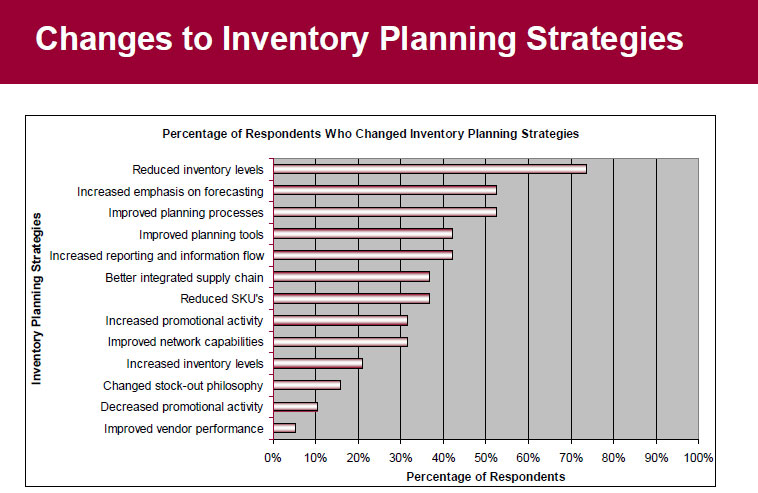The Christmas/peak season of 2009 was one for the record books, with perhaps record uncertainty for retailers going into the 2009 peak season about what consumer spending would look like.
Both actual and anecdotal evidence indicates that overall, retailers erred - if at all - one the side of caution, and kept inventories extremely low.
What will the 2010 peak season bring? Understanding in more detail what retailers did in 2009 and how it worked out may be helpful - and that's just what the researchers at the Supply Chain Benchmarking Consortium from Tompkins Associates asked its members, with the results just released.
As shown in the graphic below, more than 70% of retailers reduced peak season inventory levels in 2009 versus prior years. That may not be surprising, but the emphasis on forecasting, traditionally not necessarily a retail strong point, might be, with over 50% of retailers increasing their efforts to improve forecasting results. Consistent with that, improving supply chain planning processes and tools both also scored very high.
Some 35% of retail respondents said they reduced SKU counts in 2009.

Source: Supply Chain Benchmarking Consortium/Tompkins Associates
Of course, at one level it's easy to reduce inventory levels and SKU counts. What was the effect on sales?
This is where the results get really interesting. 30% of respondents said that their inventory reductions strategies resulted in no loss in sales. An overwhelming 60% said the loss in sales was .5% or less. 10% said they gained sales from the stategies. Zero percent of respondents said there inventory strategies led to a lost sales of more than .5%.
Is that really true? Given the many empty shelves seen in 2009 we think that may be wishful thinking, but the results here are certainly interesting.
Agree or
disagree? What is your perspective? Let
us know your thoughts at the Feedback button
below.
|